Emily Brophy
"We have nature at our fingertips. We can use that to do something really exciting at our school. If we have good knowledge of what’s in the curriculum and know the right questions to ask, it can lead us to exciting child-led learning opportunities outdoors."
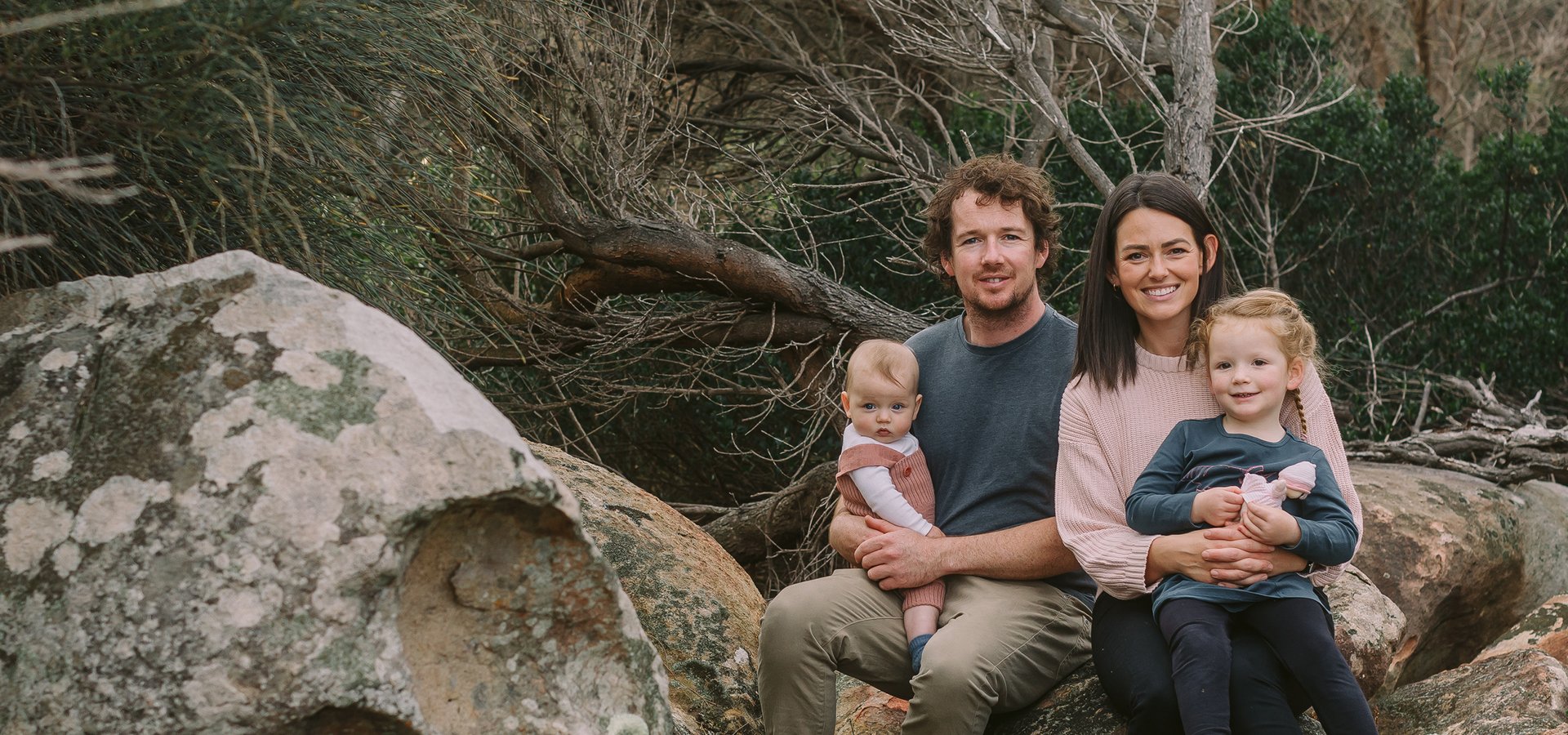
"Kids go to childcare together, they see each other on the weekend, then at the beach. Sophia was one of only five children born in 2019, but she is loved by so many older children. They’re like siblings."
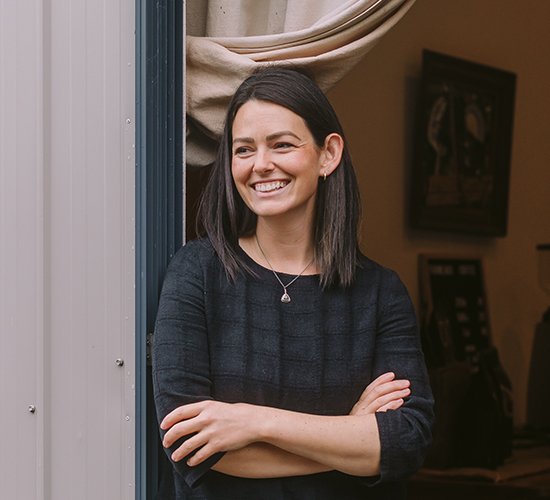
It is a moody, overcast day on Flinders Island. For Emily Brophy, it’s a perfect day to take the kids to the beach.
Flinders Island might not have a swimming pool, cinema, or play centre. But every kid has gumboots and waterproof overalls. “For a lot of children here, it’s normal to be outside,” Emily explains. “The environment is our playground. When we’ve got a week of bad weather, there’s nothing else to do. And we love that. It’s exciting for kids to be comfortable getting dirty.”
One of Emily’s favourite sayings about parenting is, “there’s no such thing as bad weather, only poor clothing choices.” Her children — four-year-old Sophia and one-year-old Zoe — are at the beach every day of the summer. They play in the bush around Emita. Sophia happily spends time bushwalking, bike riding, and building stick cubbies. For Emily and her partner, Sam, raising their children with a love of the outdoors is one of their most important values.
Emily’s own sense of adventure began in childhood. Her father, an artist, was an avid traveller, and they often visited his family in England. They lived in different places around Melbourne, surrounded by a community of close friends. “My dad was a single dad,” Emily recalls. “In that sense of ‘a village raises a child’, they banded together to support us.” When Emily was 14, one of these friends moved to Flinders Island, where he had grown up, and Emily and her dad went to visit him. By the time she was 16, they were living on Flinders full-time.
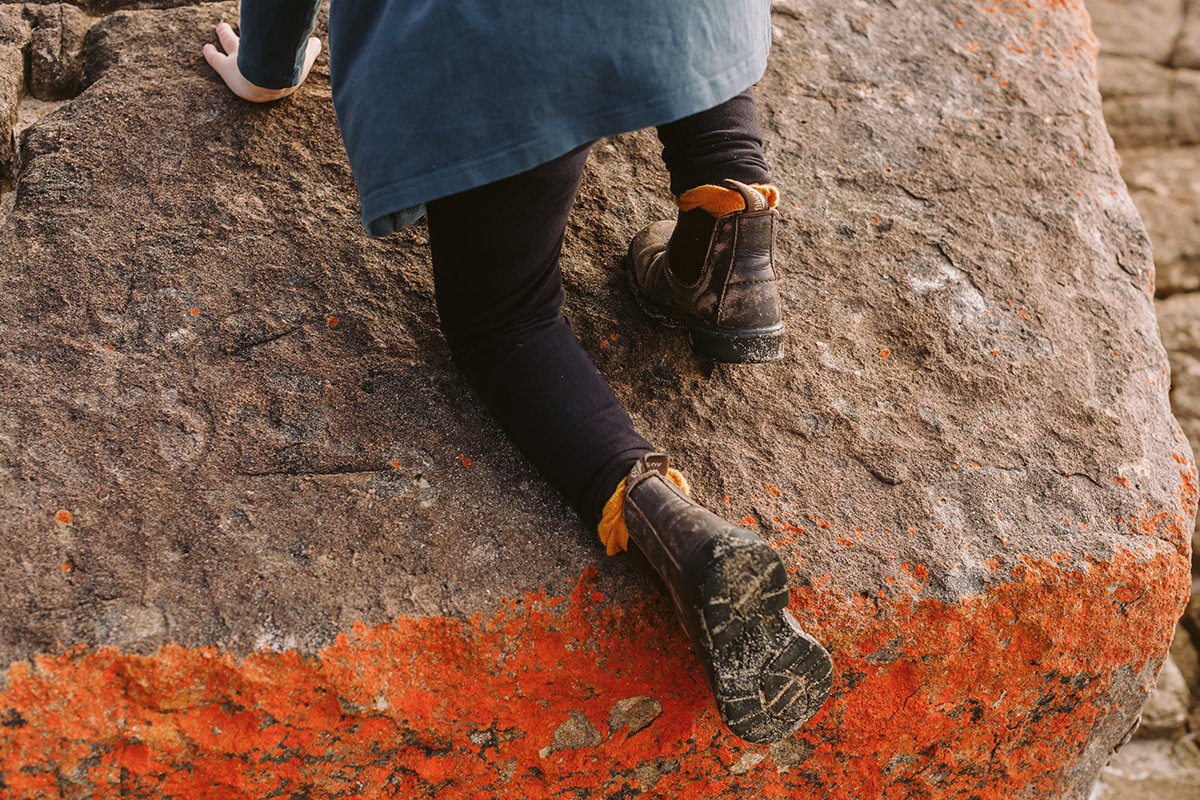
Emily moved to mainland Tasmania to study. “I chose teaching as a career because I felt passionate about children.” It was there she met her partner, Sam, who is also from Flinders. Eventually, they moved back to the island together. It was in raising her and Sam’s own children that Emily’s values about early childhood landed for her. “Through teaching, I developed a strong ethos around raising children. But I remember a colleague saying that when they became a parent, things changed for them as a teacher. I can see that happening in myself,” Emily reflects. “We can have such high expectations of children. It’s important for us to remember that they aren’t just tiny adults. Now, as a parent and teacher, I really listen and watch, to see things from their perspective.”
She recalls a time when Sophia wanted to sit at the kitchen bench with the adults. There was a pile of folded laundry on one of the stools, which Sophia pulled onto the floor. Everyone’s first reaction was to think Sophia was being a troublemaker, but Emily knew there was more to the story. “She wasn’t thinking about her actions,” Emily explains. “All she wanted was to sit on the stool, so she could be part of the conversation. If you don’t have the time or perspective, you might jump to conclusions. For me it’s about looking at the bigger picture.”
Having children of her own has reconnected Emily to what it meant to her to have a village around her. Emily explains that, on Flinders Island, everyone knows each other from birth. The relationships and connections children form now will carry on throughout their whole lives. “Kids go to childcare together, they see each other on the weekend, then at the beach,” she says. “Sophia was one of only five children born in 2019, but she is loved by so many older children. They’re like siblings.” Emily loves that children of different ages play together. Most of her friends have older children, giving them the time and experience to help. “That support is around you because not everyone has a newborn!”
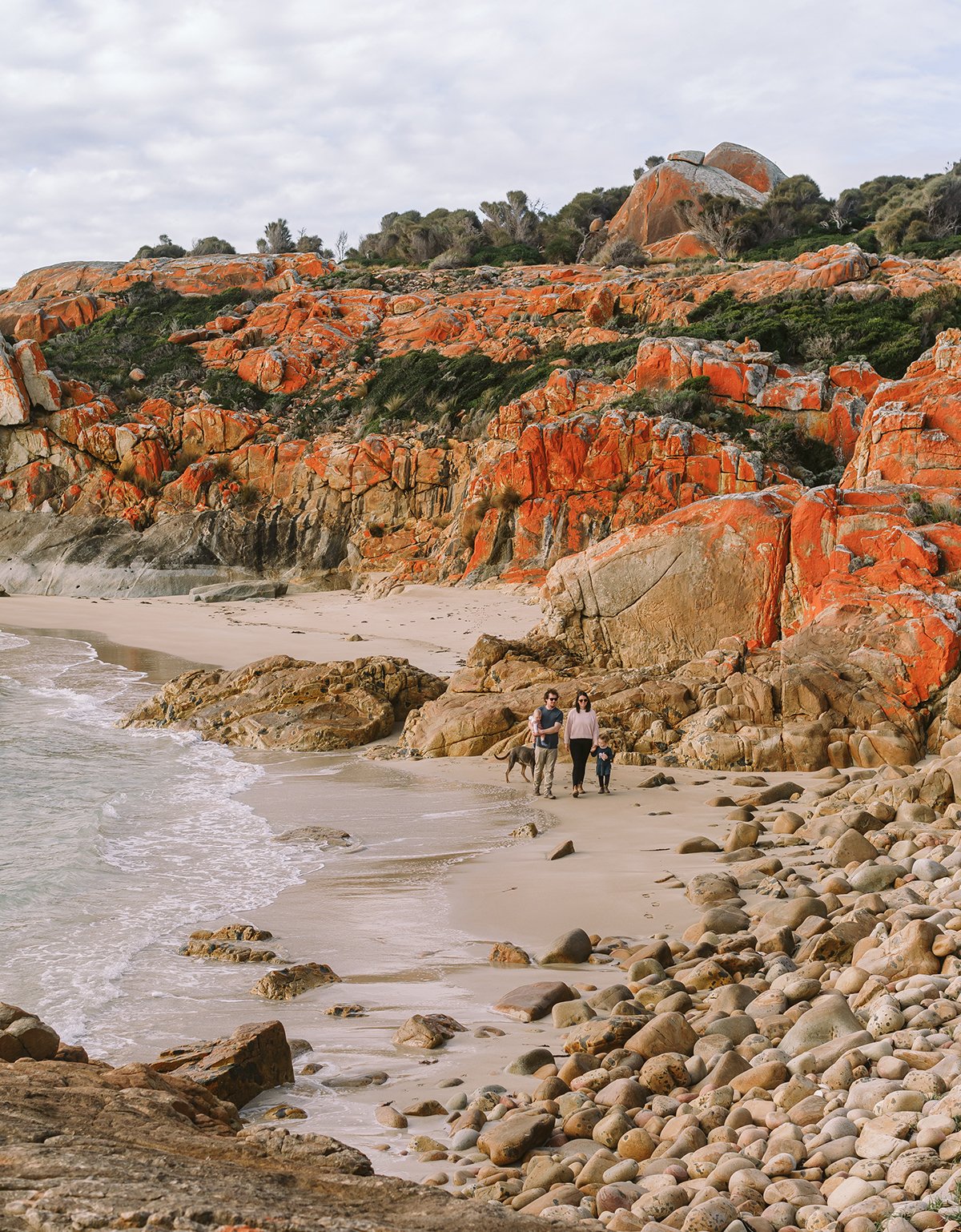
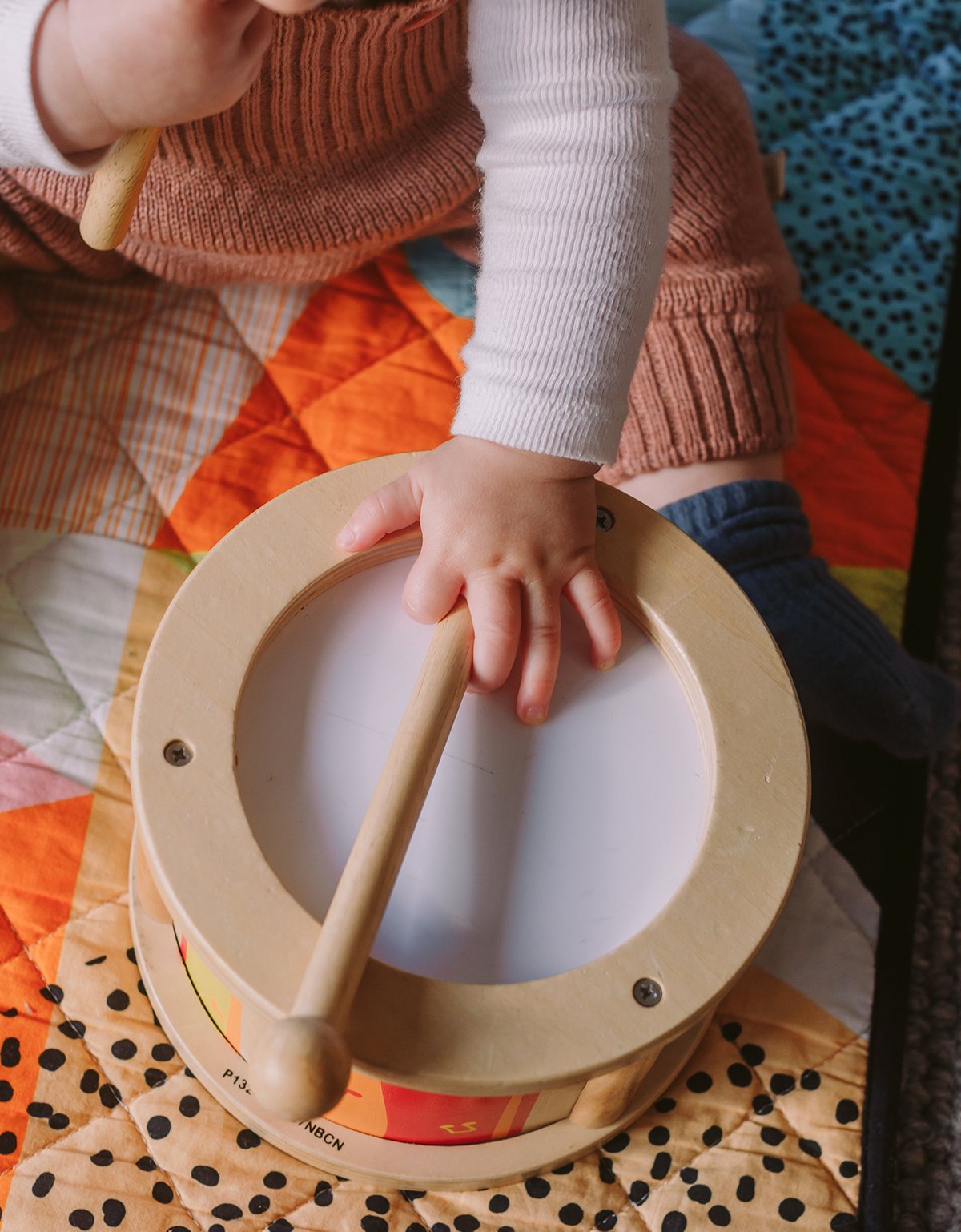
As a teacher, Emily is passionate about engaging children in nature. She has taught kindergarten, prep, and Launching into Learning, a program for children ages 0-4 that helps them get to know their local school. She is also an Advanced Skills Teacher, supporting all the Early Childhood teachers. “We have nature at our fingertips,” Emily explains. “We can use that to do something really exciting at our school. If we have good knowledge of what’s in the curriculum and know the right questions to ask, it can lead us to exciting child-led learning opportunities outdoors.” Emily believes the outdoors provides a great opportunity for children to learn how to take calculated risks in a safe way. “As a parent, I try to sit back for a moment. For example, if one of my kids falls down, I try to wait a second to see what her reaction is and meet her at that level, rather than me reacting and her responding to that.” For Emily, providing children the space to learn and work it out for themselves is one of the greatest gifts we can pass on.
Emily and Sam want Sophia and Zoe to feel as equals in their family but also show them that everyone is their own person. “They’re part of my life,” Emily explains. “It’s not my life and they’re coming along for the ride. It’s our life together and our home.” Part of that is modelling for their children all the richness that life on Flinders has to offer. Emily loves running, and she is a committee member for the Harriers, a running group that hosts an annual running festival. Every Wednesday, they run 5 km together and meet for a barbecue or pub meal afterwards. Each week, Emily goes boxing, and she loves to take the kids along. “It’s nice for them to see how important exercise is in our life, and that I take that time for myself.” In the evenings, Emily roasts coffee for her small business, Furneaux Coffee, which supplies a few local businesses. “I just go down into the shed, and that’s really my own time. I go into a flow state when I’m exercising or roasting coffee, because I can’t think of anything else. It’s a lovely time for my brain to rest, to have that time in the present moment.”
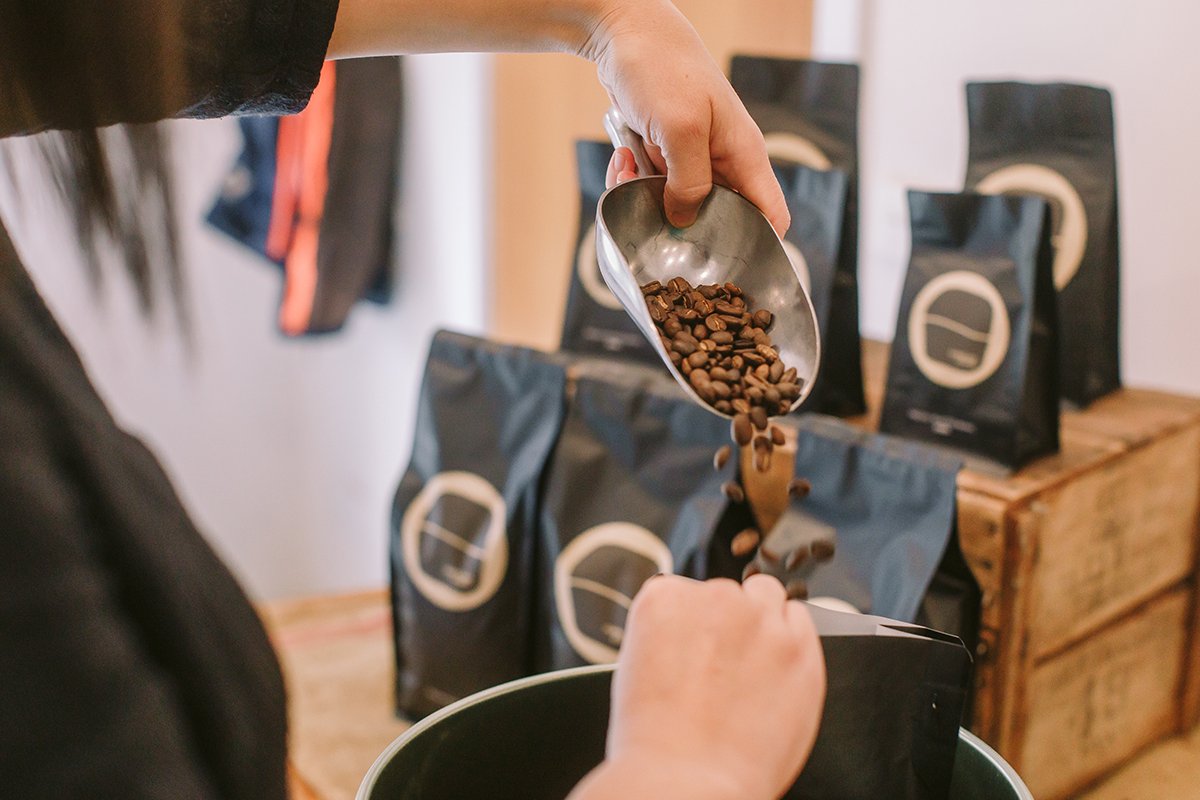
I haven’t lived on Flinders for generations or even my whole life, but I feel very lucky to be part of the community here.
Life for Flinders parents still has its challenges. The local childcare centre is often understaffed, making it hard for some parents to work. “Our childcare hours were reduced from 8:30am to 3:30pm, and my work hours are longer than that,” Emily explains. “Sometimes the centre can’t open if a staff member gets sick. There’s no before or after school care, and no holiday care.” For better or worse, Emily and other parents rely on the village around them. “All we’ve got is each other,” she says. As the kids grow older, there come the questions of how to balance the beauty and closeness of a Flinders Island opportunity with other opportunities, like team sports, dancing, and higher education opportunities. “In the past, a lot of us, including me, had to go to Launceston for school in Year 11 and 12. Now our school goes up to Year 12, and so many more uni courses are available online.”
But Emily and Sam hope their children will have adventures beyond the island and bring their experiences home. “Sam and I love travelling and exploring. We both did before we met, and we have done that our whole time being together. We want to instil those values in our children as well.” Still, however much they love experiencing other places, Flinders Island still calls to them. “I haven’t lived on Flinders for generations or even my whole life, but I feel very lucky to be part of the community here. Even though at some points we will leave, I think we’ll always come back. We’ll always call Flinders Island home.”
We worked with southern Tasmanian photographers Fred + Hannah for this Tasmanian story.